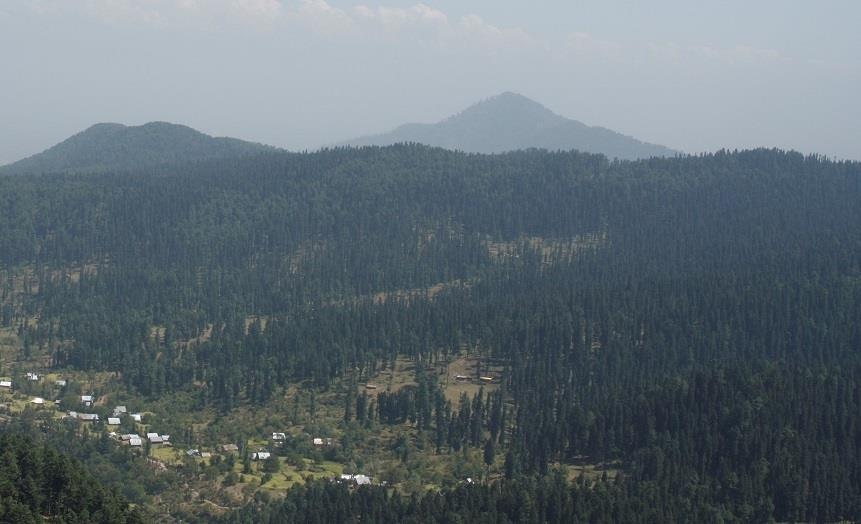
Despite Greening In Crop Lands, Forest Vegetation Declining In India: IIT KGP Study
File Photo
Kolkata- A study by IIT Kharagpur has revealed that while the country is experiencing significant 'greening' (rise in green cover) in farm lands, India's forest health is steadily declining due to reduced photosynthetic efficiency which measures how effectively a plant converts light energy into chemical energy for growth.
The researcdhders advocated preservation of indigenous forests to reach India's target of net zero emissions by 2070.
While this green plantation drive is mostly contributed by irrigated crop lands than forests, there is a decrease in vegetation greenness in regions of high carbon uptake, according to the study, led by Prof Jayanarayanan Kuttippurath and Rahul Kashyap of the Centre for Ocean, River, Atmosphere and Land Sciences at IIT Kharagpur.
The study,“Weakening of forest carbon stocks due to declining Ecosystem Photosynthetic Efficiency under the current and future climate change scenarios in India”, emphasises the urgent need for preservation of indigenous forests, sustainable forest management practices and other measures to address the issue.
The key findings of the study were that the photosynthetic efficiency of Indian forests has declined by 5 per cent between 2010–2019 compared to the previous decade (2000–2009) and the decline is most pronounced in pristine forests of the Eastern Himalaya, Western Ghats, and Indo-Gangetic Plains.
“Forests show low resilience to warming, drying, land and atmospheric aridity, and wildfires, with only 16 per cent exhibiting high integrity,” the study noted.
“Much of the decrease in forest health is contributed by global warming. That causes reduced soil moisture and higher air temperatures. Wildfires and landslides are the other natural factors. However, deforestation, mining and other development activities also contribute to the decline in forest health,” Kuttippurath, the lead researcher, explained.
The degradation of India's forests poses serious risks to biodiversity, timber production, livelihoods of forest dwellers and long-term climate resilience, the researchers said.
Indian forests are non-resilient to the extremes of warming, drying, land and atmospheric aridity and wildfires. Climate projections suggest the weakening of the forest carbon sinks and declining forest health and is likely to be stronger in the future due to climate change and anthropogenic interventions.
The degradation of forest resources is a concern for the economy and it would impact its timber production, market, planting intensity and lives of forest dwellers in India, the study said.
“It also threatens biodiversity and pushes them towards extinction. Degradation of forests in ecologically fragile regions can lead to more frequent climatic extremes in the future,” noted Rahul Kashyap, lead author of the study.
The researchers warned that the weakening of forest carbon sinks will become more severe under future climate change and anthropogenic pressures.

Legal Disclaimer:
MENAFN provides the
information “as is” without warranty of any kind. We do not accept
any responsibility or liability for the accuracy, content, images,
videos, licenses, completeness, legality, or reliability of the information
contained in this article. If you have any complaints or copyright
issues related to this article, kindly contact the provider above.


















Comments
No comment